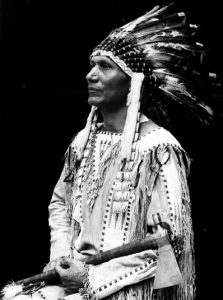American Indian Stories
WRITTEN BY:
Charles A. Eastman (Ohiyesa)
NARRATED BY:
Michael Scott
“Old Indian Days” is a collection of short stories written by Charles A. Eastman, a Native American writer and physician. The stories are based on his personal experiences and traditional stories he heard from his Ojibwe and Sioux elders.
The book highlights the rich culture and history of Native Americans and portrays their struggles and triumphs. The stories depict the ways in which Native Americans interacted with their environment, spirituality, and the changing world around them. They also shed light on the impact of colonization, assimilation, and the loss of traditional ways of life on Native American communities.
The importance of “Old Indian Days” lies in its role in preserving Native American culture and history. The book serves as a valuable resource for those interested in learning about Native American culture and provides a rare glimpse into the daily lives, beliefs, and values of these communities. Additionally, the book has contributed to the recognition and celebration of Native American literature, which was previously marginalized in the Western literary canon. It has influenced subsequent Native American writers, such as Louise Erdrich and Leslie Marmon Silko, and has paved the way for the emergence of Native American literature as a distinct genre.
Short Stories Included:
- The Grave of the Dog
- The Famine
- The Chief Soldier
- The Singing Spirit
- The White Man’s Errand
- The Madness of Bald Eagle
 CHARLES EASTMAN (Ohiyesa)
CHARLES EASTMAN (Ohiyesa)
Charles A. Eastman (1858-1939), also known by his Native American name Ohiyesa, was a Santee Dakota physician, writer, and activist who worked to promote understanding and appreciation of Native American culture and traditions. He was born in Minnesota and raised in a traditional Dakota Sioux family but later attended Dartmouth College and Boston University to pursue a career in medicine.
Eastman became an important advocate for Native American rights and worked with the U.S. government to improve the conditions of Native American reservations. He was also an author and wrote several books, including “Indian Boyhood” (1902), “The Soul of the Indian” (1911), and “From the Deep Woods to Civilization” (1916). These books provided insight into his experiences growing up as a Native American and his perspective on the challenges faced by his people as they were forced to adapt to the changing world around them.
Eastman’s literary contributions have helped to increase awareness and understanding of Native American culture and experiences. “Old Indian Days,” in particular, is widely regarded as a pioneering work in th field of Native American literature. It was one of the earliest collections of short stories written by a Native American and was well-received by both Native and non-Native readers.
Eastman’s writings also played an important role in promoting the rights of Native Americans. He advocated for the preservation of traditional ways of life and the recognition of Native American sovereignty. He served as a representative for the Sioux at the Wounded Knee massacre hearings and was involved in efforts to secure greater legal protections for Native American communities.
Eastman’s life and works have continued to inspire subsequent generations of Native American writers and activists. His legacy has contributed to the recognition and appreciation of Native American literature and culture in the broader American society.
